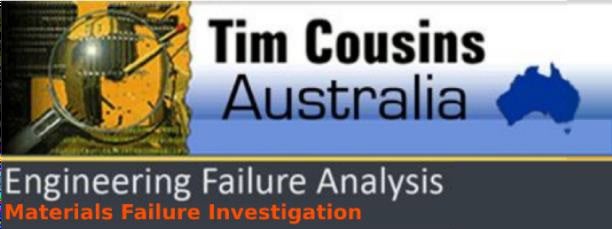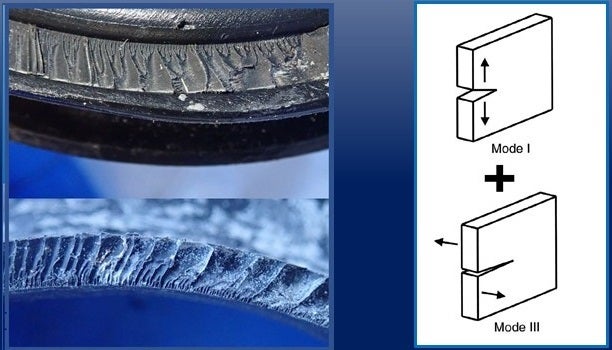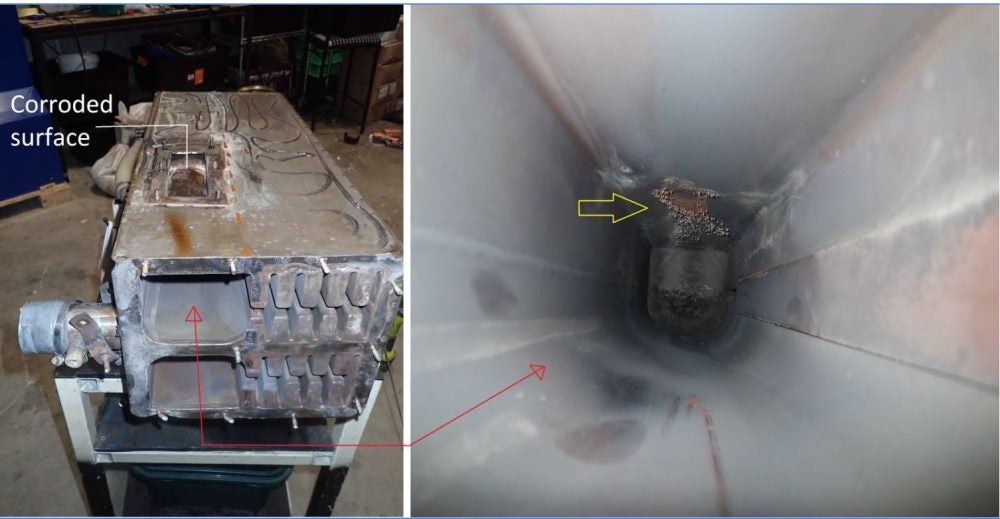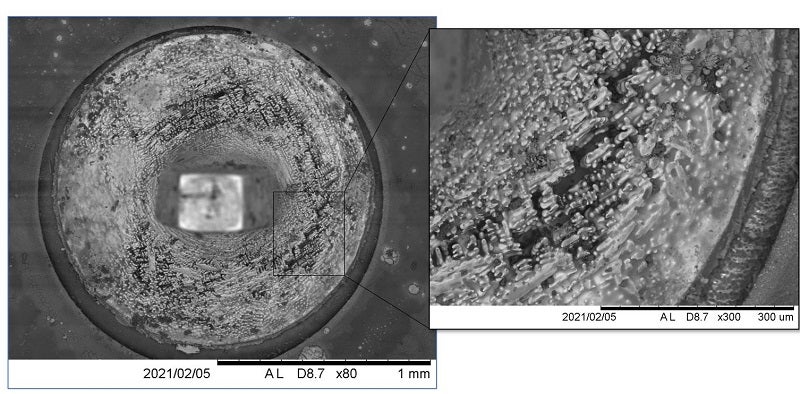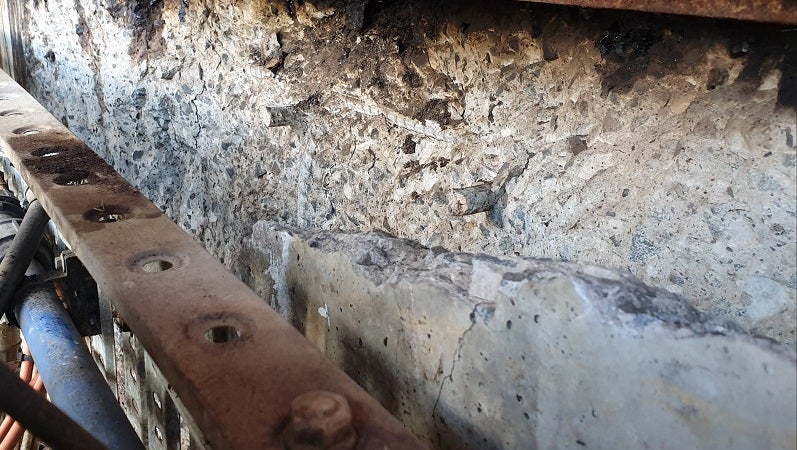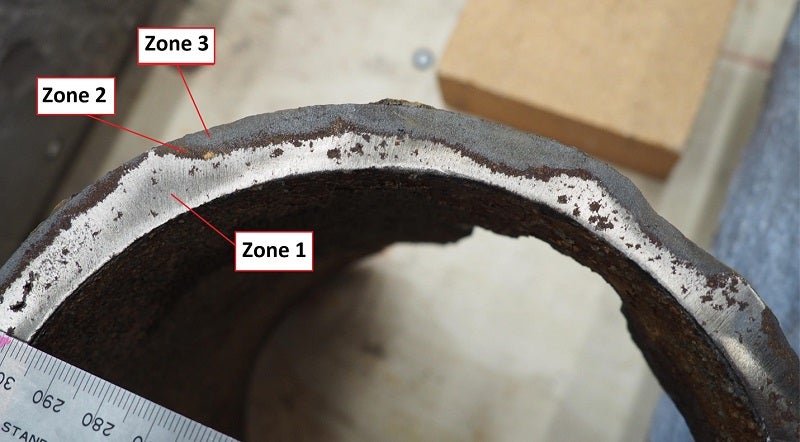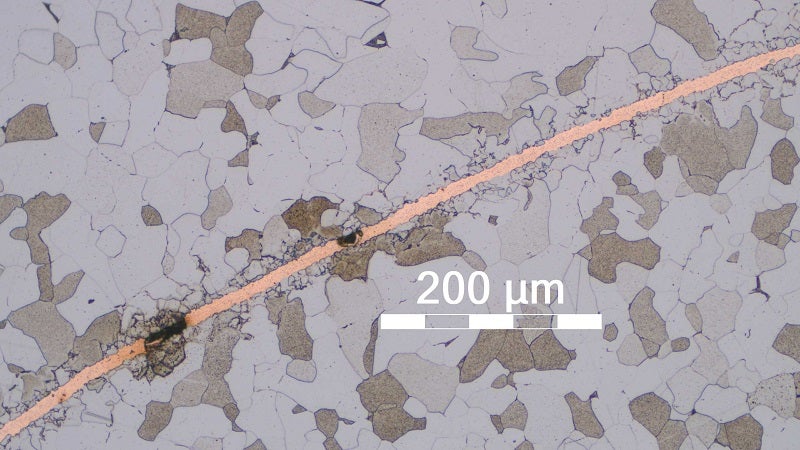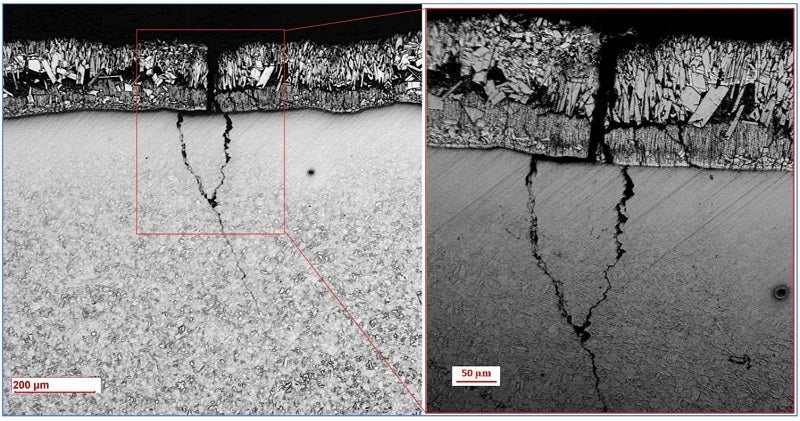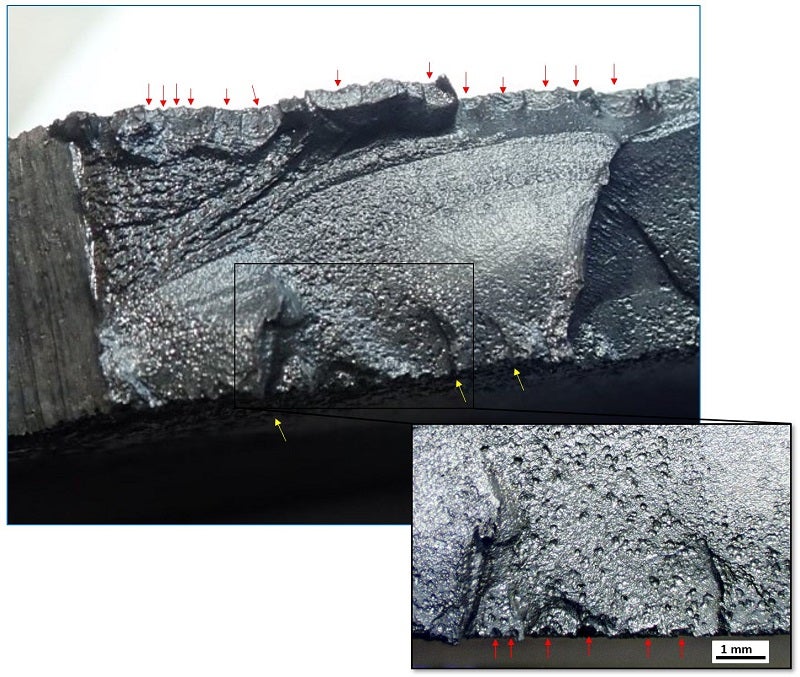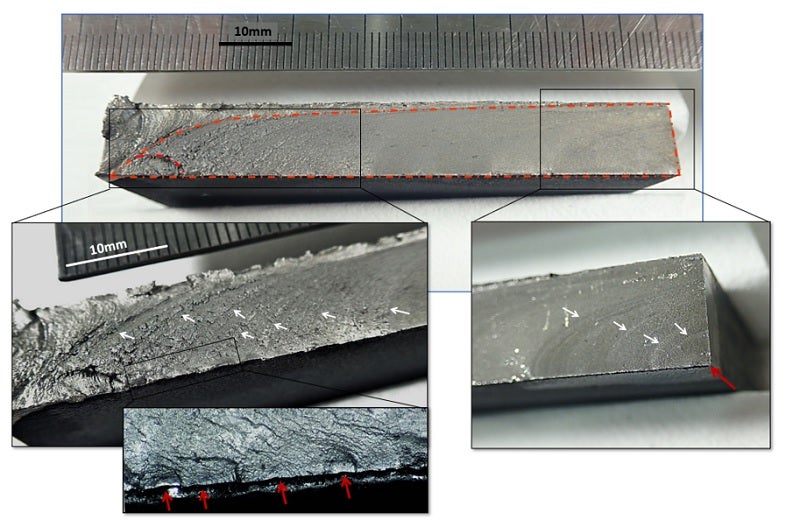Tim Cousins Australia is a multidisciplinary forensic firm that performs numerous investigations entailing failure of assets, defective materials, industrial accidents, property damage, intellectual property matters for the insurance, commercial and legal sectors.
We can assist clients with the coordination of multidisciplinary and complex investigations, including laboratory testing and field examinations.
Materials failure analysis of metals, ceramics and polymers in the mining sector
Tim Cousins Australia team provides sophisticated, scientifically rigorous failure analyses involving a broad range of products and materials using a wide variety of analytical techniques such as electron microscopy and X-ray spectroscopy.
These technologies assist us in conducting material failure analysis following various physical and environmental assisted degradation processes, including Fracture, Fatigue, Wear, Cavitation Erosion, Radiation Damage, Stress Corrosion Cracking, Corrosion Fatigue, Fretting Corrosion, Cavitation Corrosion, and Radiation Corrosion.
Our familiarity with industry standards such as the American Society for Testing and Materials (ASTM), the Society of Automotive Engineers (SAE), the American Society of Mechanical Engineers (ASME) and the International Organization for Standardization (ISO) makes us uniquely qualified to investigate all types of material failures, specifically metals, ceramics, and polymers.
Desktop assessment and review capabilities
Desktop assessment is an evaluation of documents and evidence from a desktop rather than in the field.
This is used in various circumstances, including poor or limited documentation available for review, site visit unavailability, restricted budget, or limited time for full assessments.
Our experts review all data from a desktop and provide expert analysis of product failures in a wide range of industries such as oil and gas, mining, marine, transport, agriculture, water industry, insurance, and loss adjusters.
Expert inspection and testing
Tim Cousins comprises a highly licensed professional team that includes metallurgists, engineers, technologists, material scientists and inspectors. With respect to the diversity of our professionals, clients will always be assured by performance of the most cost-effective inspection regime that will comply with the regulatory requirements.
Legal and forensic reporting
Our team provides independent failure analysis services for contentious matters entailing investigating material failures, mechanical failures, electronic and electrical engineering system failures.
Our experts have prepared forensic failure expert reports and given expert evidence in the Australian Courts in relation to the various complex multidisciplinary dispute.
Secure evidence storage solutions
Tim Cousins Australia offers secure evidence storage, which is dedicated space for the sole purpose of securely storing forensic evidence that the forensic laboratory may process or has processed.
Our secure evidence storage facility is supported by robust evidence management. Evidential storage is the most secure storage area in the forensic laboratory and the most rigorously controlled area with full close circuit television (CCTV) and alarm coverage. All access is regularly reviewed and limited to the minimum possible number of employees.
Our secure evidence storage facility is designed so that it can withstand any forced or otherwise unauthorised entry, as well as any environmental threats.

